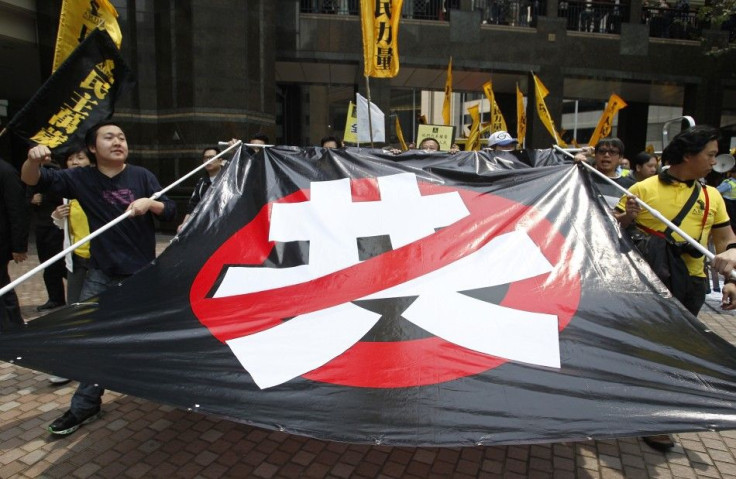China-Backed Candidate Elected Hong Kong Leader

A property consultant long tied to China's leadership won Hong Kong’s executive election, authorities said Sunday.
Leung Chun-ying , 57, took 61 percent of the 1,132 votes cast by members of the election committee comprising mostly senior members of the pro-Beijing political camp and Hong Kong business community, the Financial Times reported.
The results were met with much dismay, with many alleging that the polls were controlled by Beijing, Reuters reported. A survey conducted a day before elections showed that neither of the two main candidates had majority support.
The result of this election does not reflect the sentiments of the people, Liberal Party leader Miriam Lau said.
Leung said after his victory that the campaign reconfirmed our core values, which I steadfastly share with the people of Hong Kong. The rule of law, human rights, integrity, anti-corruption, freedom of the press, speech and assembly are part of the way of life for all Hong Kong people, he said. To the seven million people, I solemnly pledge that the freedom and rights that they enjoy today will be maintained under my administration.
He was interrupted by demonstrators shouting anti-Communist Party slogans in the background, while hundreds gathered outside the polling station to express their anger against the small-circle election and their fear that Leung would not protect hong Kong's freedoms. Many fear that he might undermine the city's autonomy and social liberties, given his close ties to Beijing's government.
Leung was conciliatory in victory, saying: To the people that are shouting and protesting outside, yes they do have a vote, they do have a voice. Yes they are part of Hong Kong. I've done as a candidate everything I can, as a candidate under this system to make sure I'm accountable not just to a 1,200-strong election committee, but to everyone in Hong Kong.
This was the first chief executive election to feature a genuine contest between China-sanctioned candidates. In past races, the pro-Beijing candidate would run unopposed apart from facing a representative from the pro-democracy camp with no hope of winning. Albert Ho, head of the city’s Democratic Party, received only 76 votes Sunday.
Henry Tang, Leung’s closest rival, received a quarter of the vote as key business tycoons, including billionaire Li Ka-shing stood by him despite the region’s main pro-Beijing political party last week declaring its support for Leung.
That decision, by the Democratic Alliance for the Betterment of Hong Kong, was seen as a signal that Leung was Beijing’s choice.
Leung’s popularity ratings had slipped in recent weeks, to around 35 per cent, after he was caught up in a number of scandals. Among them was an allegation by Tang – himself plagued by scandals – that he had suggested using riot police to crack down on a peaceful demonstration in 2003. Tang had been seen as the front-runner until he was undone by revelations of a basement constructed in his home without planning permission and of allegations of extramarital affairs.
In his campaign, Leung promised to address rising income inequality in Hong Kong and to help make smaller companies better able to compete against the long-standing dominance of local conglomerates. But political commentators doubt he will be able to force through real change.
“The fact that he won on so few votes showed how divided the pro-establishment camp is,” said Choi Chi Keung, professor of politics at the Chinese University of Hong Kong. “He would have to appease the business tycoons who backed Mr. Tang, so I think it is unlikely that he would do anything to challenge them. At the same time, his administration will find it very difficult to run Hong Kong in the next five years given his lack of public support and a lack of ability to unite the different interest groups”.
China has promised universal suffrage at the next election for chief executive, to be held in 2017, but details of the selection process are undecided.
© Copyright IBTimes 2024. All rights reserved.





















